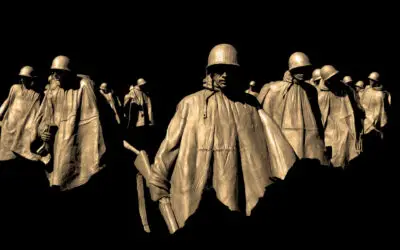I recently watched “Seven Samurai” (1954) and was immediately captivated by this oriental action packed movie. While watching it I noticed a musical theme that sounded similar to the music in “The Magnificent Seven” (1960), a favorite western of mine. This intrigued me, prompting some research on Akira Kurosawa and his work. Surprisingly, I discovered that “The Magnificent Seven” is actually a Western remake of Kurosawa’s “Seven Samurai.” The basic plot and scene settings are closely followed, with the American film setting the story in the Wild West instead of feudal Japan. The characters in “The Magnificent Seven” were modeled after those in “Seven Samurai,” and the musical themes in both movies enhance the storytelling in similar ways. I found it fascinating how Kurosawa’s work bridged cultural gaps. Here is a Japanese movie showing a universal theme of bravery, sacrifice, and justice, very much like old westerns I watch depict.
In this article, I’ve added links to some of the best films made by Akira Kurosawa available on Amazon. You can also find them available on Prime Video. So without further ado, here is a short bio of Kurosawa’s personal life and work and his unique adaptations of Western culture into Japanese filmmaking.
Kurosawa’s personal life was marked by a deep ambition to explore storytelling through cinema. He was inspired by the works of Western filmmakers like John Ford and Russian literature, which influenced his narrative style. Kurosawa began his career in the film industry as an assistant director at P.C.L. (Photo Chemical Laboratories), which later became Toho Studios. His first job involved various roles, from editing to writing, which helped him learn the intricacies of filmmaking. It was his directorial debut with “Sanshiro Sugata” in 1943 that launched his career, showcasing his potential and unique vision.
Rashomon (1950)
“Rashomon” presents a gripping tale of a crime recounted from multiple perspectives. Starring Toshiro Mifune and Machiko Kyo, this film dives into the complexities of truth and human perception. Directed by Akira Kurosawa, it is based on two stories by Ryunosuke Akutagawa. Furthermore, it won the Golden Lion at the Venice Film Festival. This acclaim helped introduce Japanese cinema to a global audience, solidifying Kurosawa’s fame.
Throughout his career, Kurosawa achieved significant milestones with several notable works. His films “Rashomon” (1950) and “Seven Samurai” (1954) gained international acclaim, with “Rashomon” winning the Golden Lion at the Venice Film Festival. These films not only brought Japanese cinema to the global stage but also influenced filmmakers worldwide. Kurosawa’s storytelling, characterized by complex characters and moral dilemmas, set a new standard in filmmaking.
Some of Kurosawa’s most notable works include “Ikiru” (1952), a profound exploration of the meaning of life; “Yojimbo” (1961), which inspired the Western genre; and “Ran” (1985), a visually stunning adaptation of Shakespeare’s “King Lear.” These movies, among others, helped cement his reputation as a master storyteller and visual artist.
Ikiru (1952)
“Ikiru” tells the poignant story of a bureaucrat, played by Takashi Shimura, who seeks meaning in his final months. Directed by Akira Kurosawa, the film is based on Leo Tolstoy’s novella “The Death of Ivan Ilyich.” Moreover, Kurosawa’s direction captures the profound transformation of the protagonist. Consequently, “Ikiru” received critical acclaim and is considered one of Kurosawa’s masterpieces, highlighting the director’s ability to explore deep human emotions.
Kurosawa’s career was marked by his versatility as a director, screenwriter, and producer. He was known for his meticulous attention to detail and innovative techniques, such as the use of multiple cameras and dynamic compositions. Furthermore, Kurosawa’s films often explored themes of human nature, existentialism, and social issues, setting his work apart from others in the industry.
Seven Samurai (1954)
“Seven Samurai” follows seven samurai who defend a village from bandits. This classic features Toshiro Mifune and Takashi Shimura in leading roles. Directed by Akira Kurosawa, the film is an original story that blends action with character development. Furthermore, “Seven Samurai” won several awards and inspired many remakes, including “The Magnificent Seven.” Its influence on the action genre and storytelling techniques remains significant to this day.
In terms of awards and nominations, Kurosawa received numerous accolades throughout his career. He won the Academy Award for Lifetime Achievement in 1990, and his films garnered several international awards, including the Golden Lion, the Palme d’Or, and various Japanese film awards. These honors reflect his immense contribution to the art of filmmaking.
Throne of Blood (1957)
“Throne of Blood” is Akira Kurosawa’s adaptation of Shakespeare’s “Macbeth,” set in feudal Japan. Released in 1957 the film stars Starring Toshiro Mifune and Isuzu Yamada and explores themes of ambition and fate. Moreover, Kurosawa’s unique vision merges traditional Japanese Noh theater with Shakespearean drama. Consequently, “Throne of Blood” is praised for its atmospheric direction and powerful performances, making it a standout in Kurosawa’s filmography.
Among the many interesting facts about Kurosawa, one stands out: he was known for his collaborative spirit and often worked with the same group of actors and crew members, creating a family-like atmosphere on set. Moreover, his film “Throne of Blood” (1957) is regarded as one of the greatest adaptations of Shakespeare’s “Macbeth,” blending Western literature with Japanese cultural elements.
Yojimbo (1961)
“Yojimbo,” released in 1961, stars Toshiro Mifune as a wandering samurai who manipulates two rival gangs to save a town. Directed by Akira Kurosawa, this film is an original story inspired by Dashiell Hammett’s novels. Furthermore, “Yojimbo” influenced many Western films, including Sergio Leone’s “A Fistful of Dollars.” Consequently, its blend of action, wit, and style has cemented its status as a cinematic classic, showcasing Kurosawa’s versatile storytelling.
Beyond his cinematic achievements, Kurosawa was also involved in philanthropy and activism. He supported various cultural and educational initiatives in Japan, and his influence extended to fostering young filmmakers. His dedication to the arts and education demonstrated his commitment to nurturing future generations.
Ran (1985)
“Ran,” is Akira Kurosawa’s epic adaptation of Shakespeare’s “King Lear,” set in feudal Japan. The film stars Tatsuya Nakadai as an aging warlord facing betrayal by his sons. Moreover, Kurosawa’s meticulous direction and grand visuals create a powerful narrative about power and chaos. Consequently, “Ran” received international acclaim, earning several awards, including an Academy Award for Best Costume Design. It remains a testament to Kurosawa’s enduring legacy.
Akira Kurosawa’s work significantly contributed to the movie industry by bridging Eastern and Western cinematic traditions. His innovative techniques, compelling storytelling, and profound thematic explorations have left a lasting legacy, inspiring filmmakers and audiences around the world. Kurosawa’s films continue to be celebrated for their artistic excellence and enduring impact on global cinema.
Disclaimer
Please note that while we have provided information about the brands and their product offerings, this article is for informational purposes only. The final decision to choose any brand or product mentioned in this article is entirely up to you, the reader. We encourage you to conduct further research, compare products, and make a choice based on your individual preferences and requirements.



![Ikiru (The Criterion Collection) [Blu-ray]](https://m.media-amazon.com/images/I/51cQDq9XiBL._SL160_.jpg)

![Throne Of Blood [1957] [DVD] by Toshirô Mifune](https://m.media-amazon.com/images/I/51u8koBEHNL._SL160_.jpg)
![Yojimbo (The Criterion Collection) [Blu-ray]](https://m.media-amazon.com/images/I/51cHTuEnWSL._SL160_.jpg)












